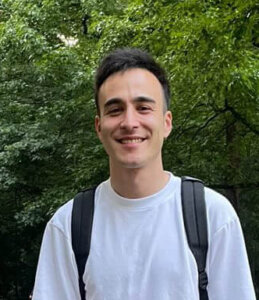‘What Do I Do With All This Heritage?’ A new play celebrates Asian Jewish America in all its diversity
The salon theater show captures the community’s joys and struggles — with songs, prayers, and K-pop
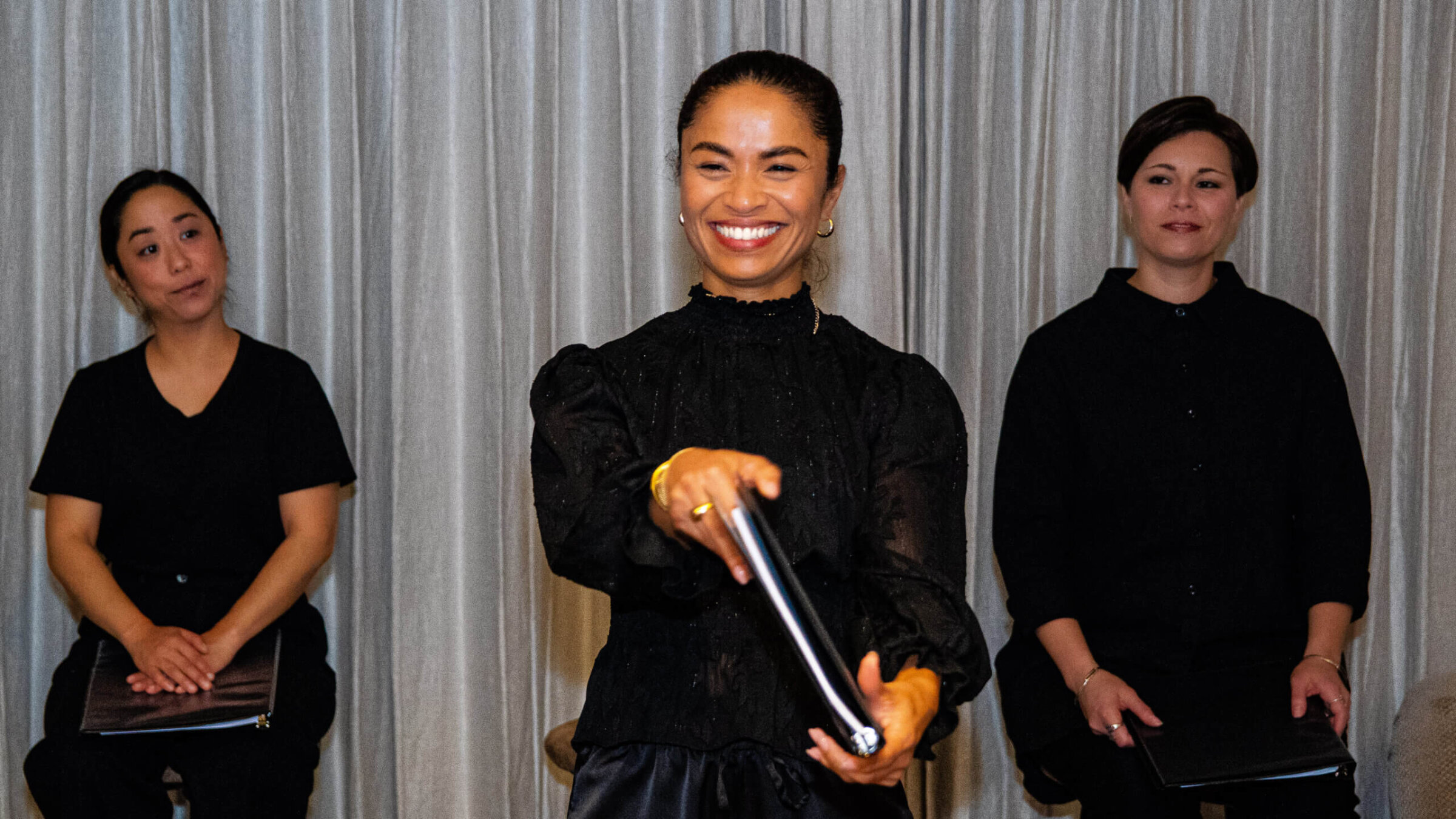
From left: Kenzo Lee, Kimberly Green, and Victoria Rani, in a rehearsal for What Do I Do With All This Heritage? Photo by David Chiu
As four other performers took their seats behind her, an actor dressed in all black stood at the bima at Temple Isaiah in Los Angeles. “I’ve got a lot to hold,” she sang. “The question’s age-old: ‘Am I just parts of a whole?’”
Over the next hour, these five Asian American actors jumped from monologue to monologue, portraying a Jewish Korean adoptee on a return visit to his birth country; a Chinese American man who finds love on JDate; and a young Indian woman studying for a joint Jewish-Muslim coming of age ceremony.
Welcome to Asian Jewish America.
What Do I Do With All This Heritage? is a new salon-style show by The Braid, a Los Angeles-based Jewish theater company. It weaves together 13 monologues about Asian American Jews making sense of hybrid identities. It’s produced in collaboration with the LUNAR Collective, an organization focused on supporting and creating media about Asian Jews.
As the show’s competing voices make clear, the community that LUNAR organizes is vast, diverse, and tough to categorize. But it is proud, and it has a lot to say.
The show’s opening monologue starts in a familiar place: a fifth-grade Hebrew school class. But there’s a twist. The speaker is pretending to be Jewish so she can go to after-school classes with her friends. She makes up a name on the spot — Rafaeli Kim — but is sent home when teachers can’t find her name in the class roster.
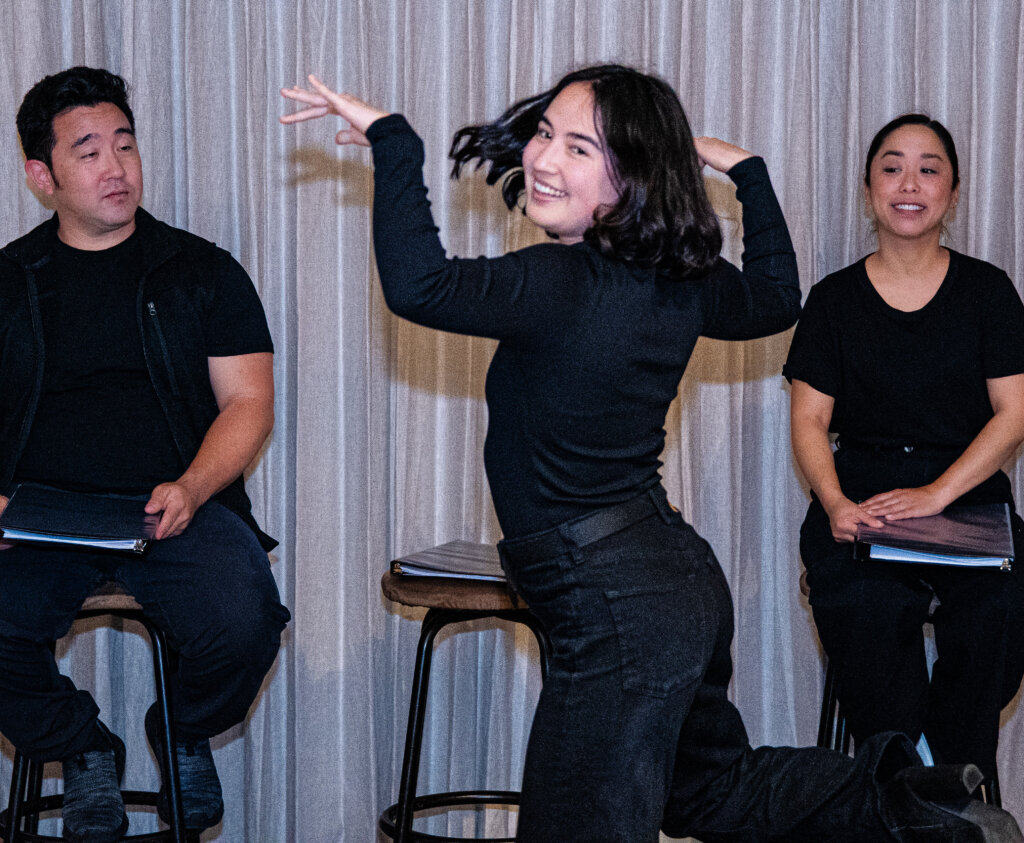
It’s not until she marries a Jewish man years later, and is in her third trimester of pregnancy, that she converts to Judaism. “Who would have thought that Rafaeli Kim was a sign of things to come?” she asks.
Producer David Chiu, The Braid’s Communications and Marketing Manager and a Cantonese-Litvak Jew, has dreamed of a show like this since 2019, when he wrote a monologue for True Colors, another Braid salon that featured stories of Jews of color.
A couple years later, soon after the 2021 Atlanta spa shootings that left many Asian Americans on high alert, Chiu was looking to organize an event about Asian Jews, and a friend told him about LUNAR. Soon, Chiu started organizing events for the group alongside Vanessa Bloom, a Chinese adoptee from an interfaith household.
The project finally materialized in 2022 when The Braid and LUNAR won a grant from the Jews of Color Initiative. Bloom, who is a filmmaker and a writer, and LUNAR’s executive directors, Maryam Chishti and Jenni Rudolph, served as co-producers of the show alongside Chiu.
The team sent out a call for submissions to members of LUNAR’s network, which numbers over 1,000 people across the United States and Canada. They also held a series of storytelling workshops where participants could submit their pieces to be performed by The Braid.
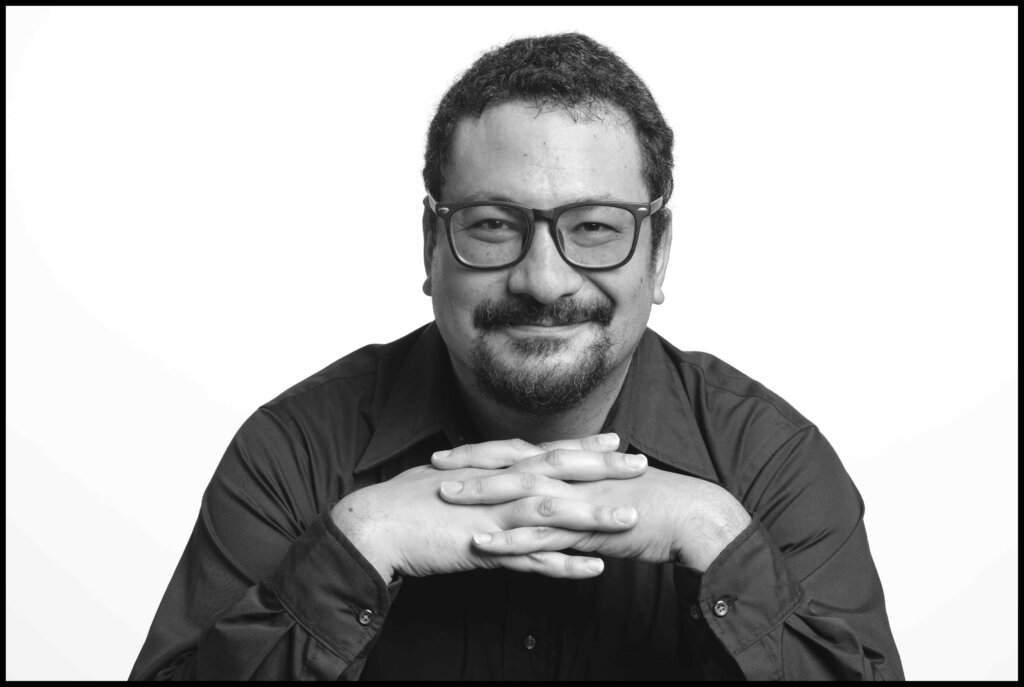
For some stories, like Lulu Fairman’s “An Indian Jew,” producers interviewed storytellers and adapted the interviews to the show. “Our house is always open,” says actor Victoria Rani onstage, recalling the warm, generous spirit of Fairman’s Orthodox Jewish community in Calcutta, India. The story centers on a moment when Fairman wants to help a homeless family on the streets of Calcutta, but her friend stops her. Later, her father warns her: “You would give someone the shirt off your back. But then you’ll be stuck walking naked in the street.”
Years later, living in England, she meets another destitute woman on a street corner. This time, she gives her money and her sweater, and realizes that generosity is how she honors her upbringing as an Indian Jew.
LUNAR co-Executive Director Maryam Chishti, who interviewed Fairman and helped prepare her story for the stage, said that Fairman’s background in a deep-rooted, vibrant Indian Jewish community was “interesting in contradiction to my Indian Jewishness.”
Chishti grew up on the Upper West Side of Manhattan to a Kashmiri Muslim father and Ashkenazi Jewish mother, and was raised both Jewish and Muslim. “When I would go to India, I would be like a fully fledged Indian girl, and my Judaism wouldn’t really exist,” she said. “Then I’d be on the Upper West Side and my Indianness didn’t really exist.”
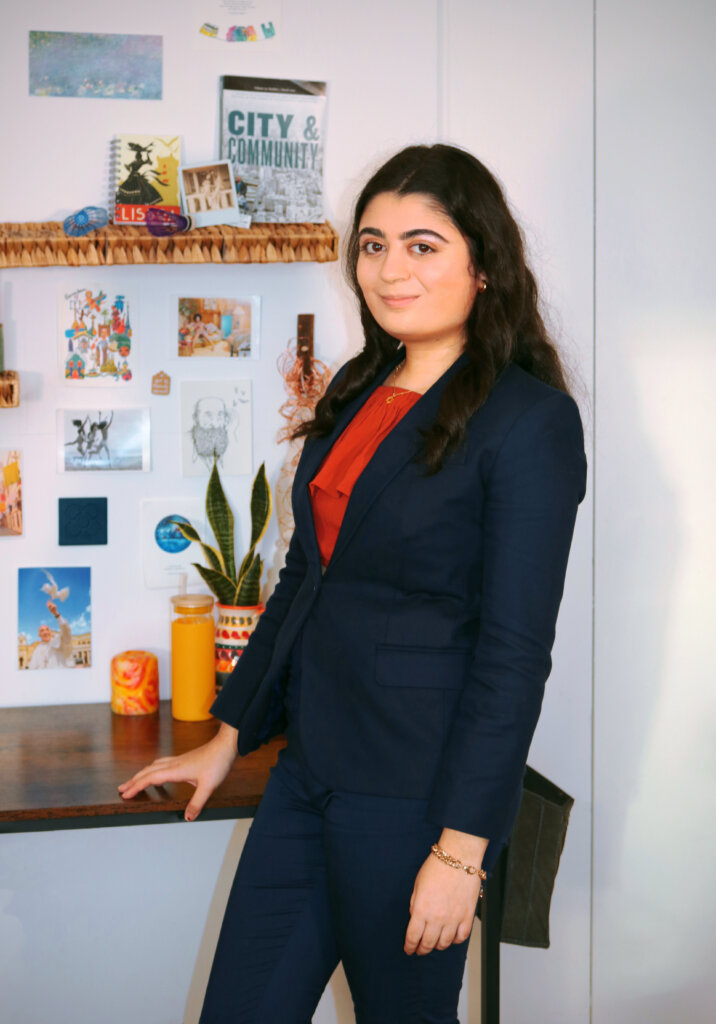
For What Do I Do With All This Heritage? Chishti contributed a monologue about how she underwent a joint Muslim-Jewish coming-of-age ceremony. After much studying and writing about the two religions, the 13-year-old Chishti thinks, “Am I missing something, or are these religions the same?” and then rattles off all of their similarities. “They are one Jewish-Muslim faith snuggled tight in the very core of my being,” she concludes.
As Muslim-Jewish tensions rise because of war in Israel and Gaza, Chishti said that she hopes that her story “gives people a different narrative about Muslims and Jews.”
Audiences seem to be excited about this fresh take on Jewish Asian identity, which just finished a tour of temples and JCC’s across California, along with two Zoom screenings. The show earned the highest opening-day revenue of any salon in The Braid’s 16-year history, and the highest revenue of any first-run Braid show. Chiu attributes its early success to curiosity about Asian Jews, along with the fact that the show is both moving and joyful — there’s even a K-Pop dance number at the end of one piece.
Even though the show is celebratory, it doesn’t shy away from discussions of racism. “Do Not Stand Idly By” tells the story of a Chinese Jewish girl at a Jewish day school in Boston whose classmates tell racist jokes. “I come home from school despising the world,” she says. But she writes her feelings about discrimination down in an essay contest in sixth grade, and ends up winning. She transfers to a more diverse, non-Jewish school, and doesn’t let her experiences deter her from getting bat mitzvahed.
Director Susan Morgenstern, who is an Ashkenazi Jew, said she felt that it was important for Chiu and other Asian Jews to play central roles in the production process. When actors rehearsed “An Indian Jew,” Morgenstern and Ronda Spinak, The Braid’s artistic director, asked the actor playing Fairman’s father to portray warmth when delivering the line about Fairman not giving the shirt off her back. But Chiu and the two Asian actors pushed back, saying that their Asian fathers would strike a decisive, or even harsh, tone when giving life advice like that.
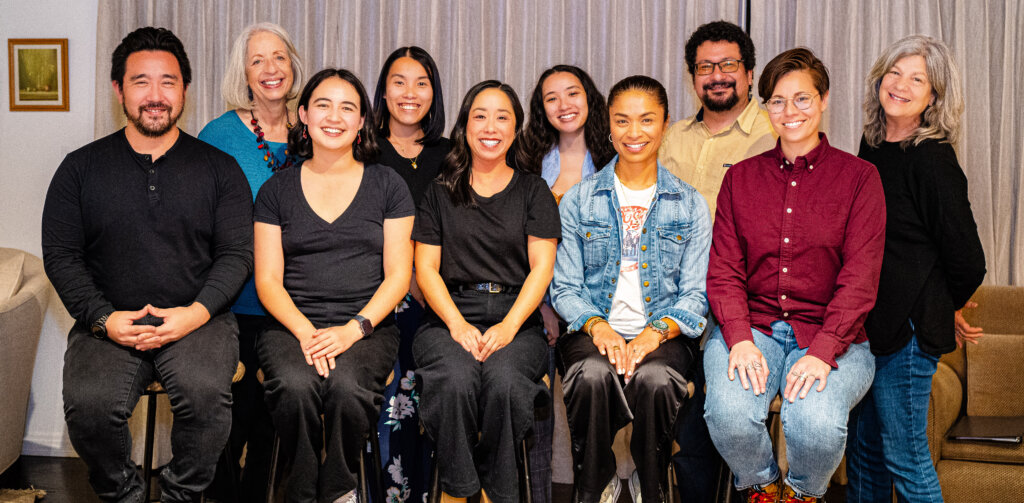
“Ronda and I looked at each other and we were like, ‘sold,’” Morgenstern said. “You guys have authentic experience. It would be crazy to lay my experience on top of that.”
Though What Do I Do with All This Heritage? respects the boundaries between authentic and inauthentic, insider and outsider, it’s not afraid to poke at them. In another story, a Chinese American divorcee joins JDate because he wants “to be with a Jewish woman who wants to change the world.” He meets a woman with whom he shares “profound similarities of values.” They both grew up in restaurant-owning immigrant families that wanted their children to be academically successful, and both cared deeply about social justice. They fall in love and get married, and the speaker converts to Judaism.
Another monologue, “How to Raise a Jewish Child,” shares the story of Chelsea Eng, a Jew-by-choice of Chinese, Danish, and Polish descent. In her piece, Eng prays at the Western Wall in Jerusalem, grieving that she won’t become a mother. When she returns home to San Francisco, her parents take an interest in Judaism. They enroll in introduction to Judaism classes, and start attending Shabbat services. “They don’t feel a need to ‘make it official’ by converting like I am,” actor Kimberly Green says at the end of her monologue as Chelsea Eng. “I might never get to raise a Jewish child, but I like to think I may have helped spark two Jewish souls.”
Green, who is Korean, Puerto Rican, and Jewish, said that she relates to Eng’s story on multiple levels. “We’re both dancers, and I don’t have children,” she said. “I went through that struggle.” She added that, as a fellow convert, she shares Eng’s sense of “connection to God and the Jewish religion.”
Chiu wants stories like this to shed a positive light on a community that is too often greeted with an eyebrow raise. “When I was growing up, people would say, ‘Oh, you’re Chinese and Jewish — you must be very confused.’ Or, ‘How does that work?’” he said. He hopes that after seeing the show, people who hear the mention of Asian Jews instead think, “Wow — what a wonderful, vibrant, joyful, creative group of people.”
